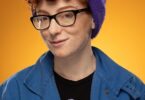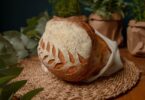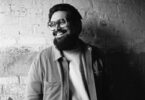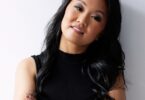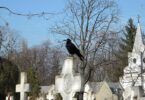Christine Higdon
[mks_dropcap style=”letter” size=”52″ bg_color=”#ffffff” txt_color=”#000000″]T[/mks_dropcap]omorrow, I’ll be the same age he was when he died.
He was ten days short of seeing the first man on the moon. We six were abruptly short a father. Town was short a good neighbour, and the world was short a man who—true Salvation Army style—regularly brought street kids home from the city for a meal and a shower.
It was raining. July. School was finally out. And there was Uncle Hal, occupying our father’s armchair, oblivious, and smoking filterless Player’s Plains in his pink shirt and gray and burgundy ascot, his legs crossed dainty-like, the way no man we’d known ever would. Queer as a three-dollar bill, Great-Aunt Reenie said. A three-dollar bill! We were thrilled.
Dad stood in the kitchen doorway, a wooden spoon swinging gallows-like between two fingers of his right hand. He had on Mom’s pink apron—surely no irony intended—and was watching us bask in the glory of another Uncle Hal story.
Breakfast is ready, Dad said, only a tiny bit sour.
None of us moved. Uncle Hal had been stringing us along, not yet telling us which famous artist had sketched his portrait on a cocktail napkin in a spiffy New York hotel. Not that any one of us kids from the sticks would have known the artist anyway. But we were ready to nod approvingly, pretending we did. You had to give back to Uncle Hal.
Kids, Dad said. Table.
Uncle Hal uncrossed his long legs and shooed us into the kitchen, clucking at us like he was doing Dad a favour. We stood around the table like runners in their starting blocks—on your marks—waiting to see which chair our uncle would choose. Our semiannual brawl came next as we each fought to sit next to him, ignoring our usual spots at the table. Mostly, the boys won those battles, but that day I crawled under the table, found Uncle Hal’s legs, climbed onto his lap, and pressed my face into his silky ascot. When I turned, triumphant as a cream-stealing cat, everyone was silent: Uncle Hal had taken Dad’s spot at the head of the table.
Dad put the pan of scrambled eggs down in front of Uncle Hal and me and handed him a serving spoon. Do your best, brother-in-law, he said with a smile, Dish ’em out, and my two-hundred-pound father sat down in the only empty chair, mine, the one with the pussycat decals.
Uncle Hal’s heart was thumping against my back as he spooned the eggs onto pieces of toast and passed the plates down. He worked around me, resting his chin on my shoulder. Dad said grace and we all said amen, peering over our folded hands at him, wary. We never said grace at breakfast, especially in the middle of the week.
Dad tolerated our idolization of Uncle Hal, but even we knew that he tested Dad’s old-school sensibilities to the core. So when Uncle Hal started telling the story about the time he shook hands with Prime Minister Pierre Elliott Trudeau—saying his name with a French accent—I figured I knew why Great-Aunt Reenie had called him queer. Dad hated the Liberals. He was still hoping for a Diefenbaker comeback. He’d trained us puppies to hope so too.
Their kitchen-table argument started as a slow growl and escalated in minutes to a ripsnorter. Dad leapt from our scurrilous prime minister to the Easterners’ imposition of French on our cereal boxes. Uncle Hal accused Dad of religious hypocrisy for not opposing the shameful Vietnam War. Dad called Uncle Hal a bleeding-heart liberal who wouldn’t know a real underprivileged person if he sat on one. They tussled on then landed, as they always did, on us kids. Uncle Hal had a bee in his bonnet about every one of us getting an education; Dad figured we’d do just dandy as shop girls or working at the Beaver Lumber store. He’d heard about Icarus.
These aren’t your big city kids, Dad said, as angry as I’d ever seen him. He waved his eggy fork over my siblings and me. Don’t fill their heads with your nonsense, Hal.
Mitch, Uncle Hal said, they can be anything they want to be. Sherman can be an architect, Charlie and Tom engineers, Mavis here a doctor, Uncle Hal said, squeezing me. Amy, he said, pointing at my little sister on her high stool, is obviously going to be an artist. And Sharon… why not an astronaut?
We all laughed imagining something as impossible as Sharon flying to the moon.
I made it out, Uncle Hal said. There’s no reason they shouldn’t.
Out! Well you are special, Hal. Sherman’s eleven. He doesn’t even know what an architect is.
Yes I do, piped Sherman. His eyes glistened with hope.
Dad turned the glare that had silenced Sherman on Uncle Hal. You come ’round here twice a year, Mr. Toronto, and after ten minutes with my kids you think you know all about childrearing. You’re no father, Hal.
Apart from the boys’ peculiar soccer coach, we’d never met a grown man other than Uncle Hal who didn’t have kids, let alone one who wasn’t married. My siblings turned from Dad to look at Uncle Hal and me. Pity for the underdog wavered in their eyes. Dad had scored a crucial point in the argument and had surged ahead.
But Uncle Hal came back with a promising retort, though one that left me with a little hollow in my chest: He told Dad that you didn’t have to have your own kids to know how it feels to be one growing up in a backwater.
You could’ve had your own kids if you’d made a better choice in life, Hal, Dad said. He looked down at his toast. Pass the jam, Charlie, he said.
Uncle Hal stiffened. He put his fork down and lay his elegant hands, so unlike my father’s, flat on the table. And what better choice would that be, Mitch?
I thought that the mystery of why Uncle Hal never turned up with a woman who’d one day be our aunt and give us cousins was about to be revealed. But Dad sat there on my little chair, still as a tree in a hot Okanagan summer, the red glop of jam bleeding into his toast. He didn’t look up.
I am going to be an architect, Sherman said, defiant.
I’m going to be an architect, I shouted, hijacking the career Uncle Hal had bestowed upon Sherman. Or a doctor? I said more quietly, looking at Dad.
Once I’m promoted to glory you can be anything you darn well please, Dad said. But while I’m still tramping this earth you’ll keep your feet on the ground and your head out of the clouds.
The back door opened and Mom came in, home from her night shift. Who’s being promoted to glory? she asked, shaking the rain off her kerchief.
Dad! I shouted. I wriggled off Uncle Hal’s lap.
Our mother was the one thing Dad and my uncle agreed on. They loved her to death. They stood and Mom kissed Dad on the cheek then she punched Uncle Hal affectionately on the shoulder. Uncle Hal clasped a hand around his arm, feigning excruciating pain, and wobbled around the table as though his legs were about to buckle. We shrieked with laughter as he fell, dying a romantic death, across the laps of Sherman and Sharon.
All I’m saying, Mitch, he said, gasping for breath, is you’ve got to let them let their little lights shine. Grant me this one wish before your Lord takes me. Uncle Hal hummed the familiar old song feebly, taking advantage of his sister’s presence to get in one last shot, and then his arm fell limp to the ground. We squealed and shook Uncle Hal alive. He rose, laughing, and leaned against the kitchen counter, our hero again. He lit a cigarette and Sherman snuggled up to his side, imitating Uncle Hal’s stylish pose.
Mom shot Uncle Hal an indulgent look. My brother’s a rogue, she said, stretching her arm out to Dad. Ignore him, Mitch.
Dad leaned and briefly touched his lips to Mom’s forehead. I’ll be in the garden, he said.
It’s raining, Mitch. She’d already turned and was pouring a cup of coffee from the percolator.
Dad glanced toward the big kitchen window. So it is, he said, and out he went.
◊ ◊ ◊
We landed somewhere in between the dreams they had for us—Dad’s limited and Uncle Hal’s lofty. Sherman and Tom are firefighters. Charlie’s a ship mechanic. Amy’s a hairdresser and Sharon’s an accountant. I went to college and became a photographer. Who knows if Dad would have been pleased with us, flying so close to the sun. He was some stubborn, our father. What I do know is that he would have been none too pleased with the life partner I chose. Nor she with him.
◊ ◊ ◊
After breakfast that morning Mom put us on kitchen duty. Let me have just one quiet cup of coffee with your Uncle Hal in the living room, she said.
Charlie snuck off to the bathroom; we’d all used that trick, spending long minutes behind its locked door to avoid our share of the chores. But there was Charlie, back too soon.
Dad’s lying down in the garden, he said, more a question than a statement.
What? Mom shouted from the living room.
Uncle Hal was the first out the door. I remember it like this: he is a huge bird—an owl or an eagle—flying over the porch railing, soaring down the stairs, and landing next to Dad’s still body. Then, there is Mom on her knees, crushing the onions and cabbages, shouting and shouting his name. The rain is guttering on Dad’s glasses making him a blind man. A strawberry leaf is glued to his forehead. Until Uncle Hal puts his lips to our father’s I can see Dad’s been eating blackberries, they’re so purple.
Uncle Hal’s saying ambulance between the breaths he’s blowing into Dad’s mouth. He shoves Mom and she falls back in the dirt. She gets up and starts running, but she grabs Sherman by the front of his T‑shirt and lifts him like she’s Superman or something. For a few seconds he’s airborne and his feet are peddling. I know it’s because Mom needs someone to come with her to the telephone. But Sherman’s too heavy. She drops him at the foot of the stairs. I’m thinking she should have taken Amy. Or me. She should have taken me because I don’t want to watch Uncle Hal trying to kiss Dad back to life anymore.
◊ ◊ ◊
We don’t understand.
After they leave us. After the ambulance backs too slowly out the driveway with Dad, and Mom too. After Tom picks Amy up and says shush, sh-sh-shush and a robin flies down and plucks a worm out of the puddle in the garden, just where Dad has been lying, I look at Uncle Hal. He has mud everywhere and his hair is crazy askew, like a porcupine is sitting there on top of his head. He is trying to light a cigarette but his hands are shaking and Sherman—of course Sherman, Sherman’s the eldest—has to take the matchbook from Uncle Hal.
I touch Uncle Hal’s hand and I ask: So who was that artist in New York?
Uncle Hal drops to his knees and now the porcupine is lying on the grass. Sherman kneels down beside him and pats Uncle Hal’s shoulder for a while. Then we all lie down. We bury Uncle Hal under us and he takes us for a ride on his heaving back.
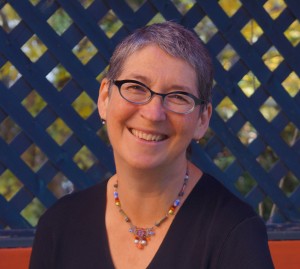 Christine Higdon is a graphic designer, editor, and writer. She grew up in British Columbia, and has lived in Toronto, Ottawa, and rural Nova Scotia. She was on the editorial collective of Fireweed, A Feminist Quarterly for a decade. When she is not designing, editing, reading, or writing at her home in Toronto, Christine hooks rugs, worries about the bees, and longs for either ocean. She is represented by Hilary McMahon at Westwood Creative Artists. Her first novel, Lulu’s Island, is currently being read by publishers.
Christine Higdon is a graphic designer, editor, and writer. She grew up in British Columbia, and has lived in Toronto, Ottawa, and rural Nova Scotia. She was on the editorial collective of Fireweed, A Feminist Quarterly for a decade. When she is not designing, editing, reading, or writing at her home in Toronto, Christine hooks rugs, worries about the bees, and longs for either ocean. She is represented by Hilary McMahon at Westwood Creative Artists. Her first novel, Lulu’s Island, is currently being read by publishers.

